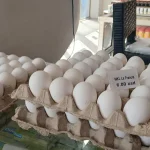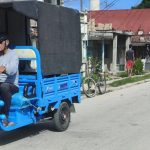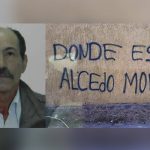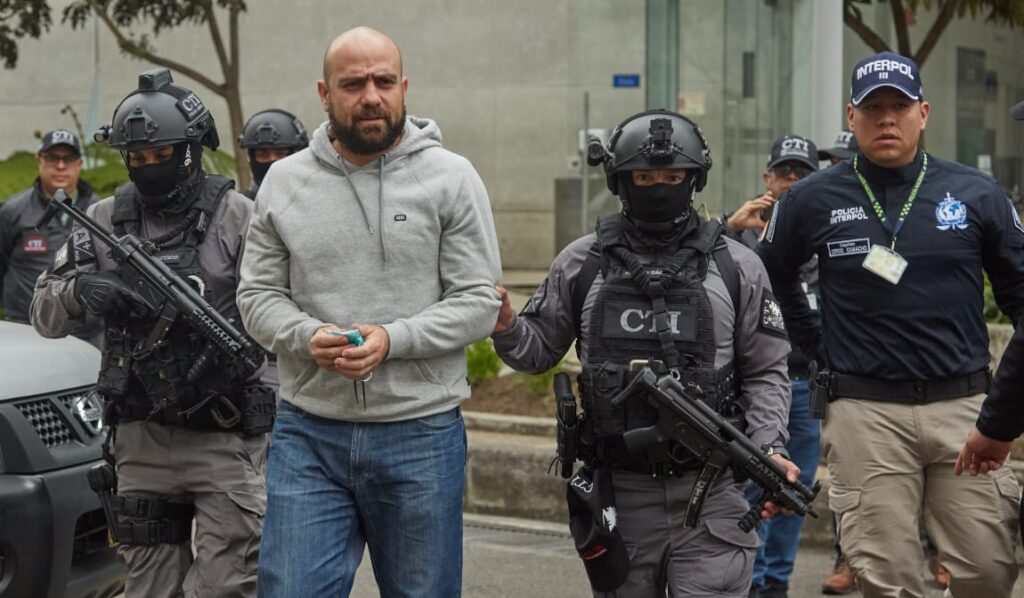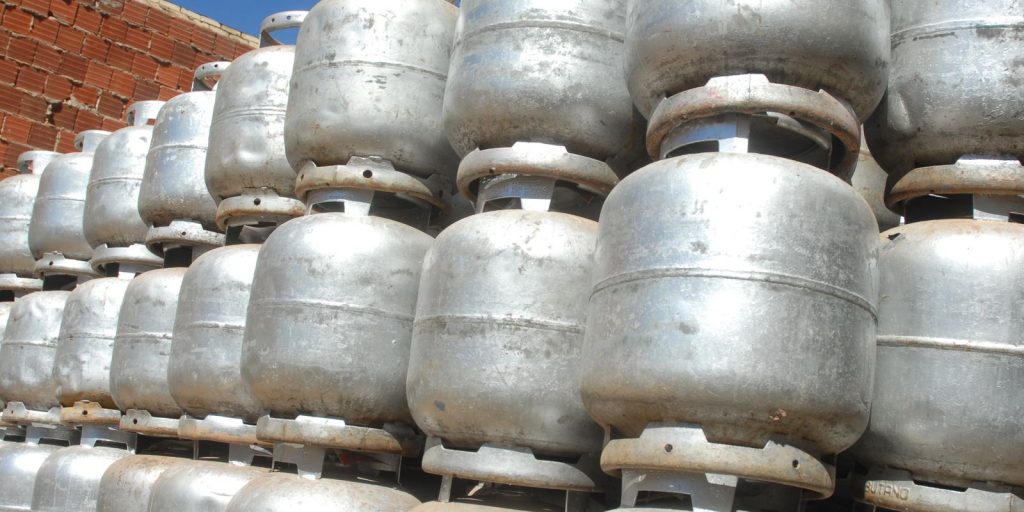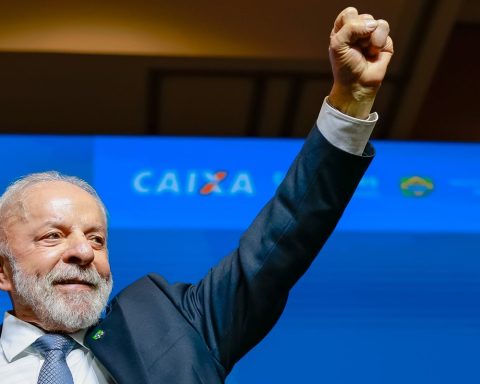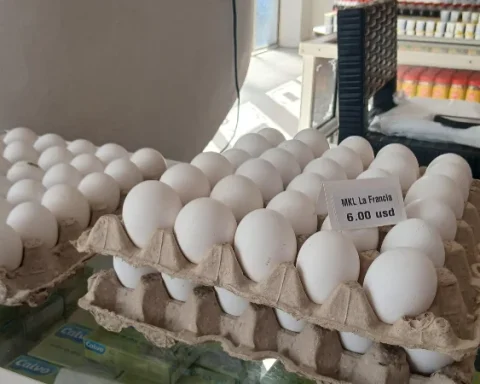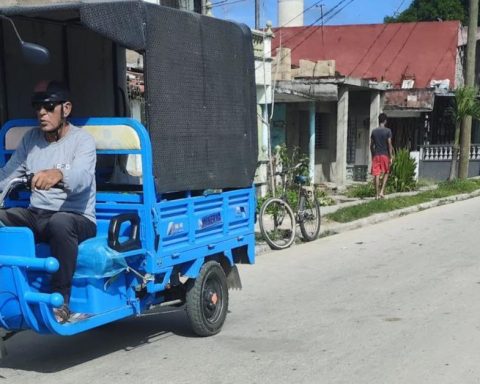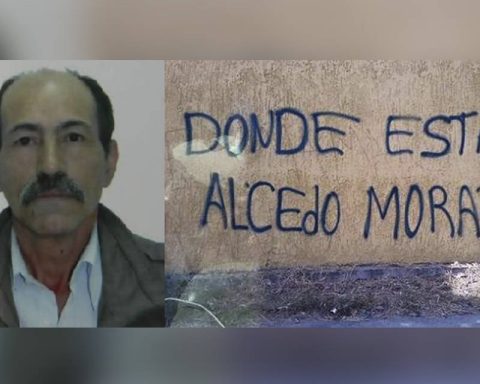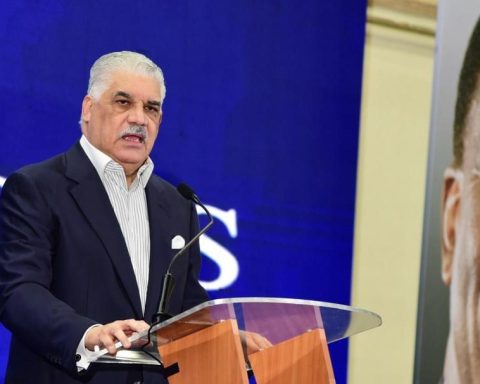Luis Quintanilla Alarcón (34) has been in preventive detention for 27 days in the Santiago 1 prison, since according to the justice system he is a danger to society. He is a pharmaceutical chemist, he does not have cases where there is a victim or relationship with trafficking crimes, but he is president of the National Dispensary, the first association of collective cultivation of cannabis for medicinal purposes in Chile, which puts a target on his back.
He is a leader in the cannabis community, he has gone to speak to Congress on different occasions, for the Health and Safety commissions, about the regulation of access to cannabis in Chile. He is the founder of the noted National Dispensary, a corporation for medicinal cannabis users that houses more than 350 members of different ages and with multiple diseases.
Today his freedom is curtailed, according to the Prosecutor’s Office, due to non-compliance with a cultivation and planting permit issued by the Agricultural and Livestock Service (SAG), however, this permit is non-existent, since it is not issued for personal or collective use, and even from the SAG they have sent a letter to the Prosecutor’s Office indicating this.
“Neither dangerous nor criminal nor delinquent”
On October 21, 2021, Luis Quintanilla and his partner, Valeska Frías, were raided due to a neighbor’s complaint about odors coming from a property leased by the association.
In August 2017 they had had another raid, which added to the one in 2021 gave Luis the reoffending so that he would enter preventive detention, Valeska affirms.
The formalization occurred on August 2, 2022, declaring preventive detention for the duration of the investigation. Luis’s lawyer, and coordinator of the Socio-Legal Psychological Clinic of the Daya Foundation (an organization that promotes the use of medicinal cannabis), Hernán Bocaz, comments that “Luis is being informed that he is being investigated for art. 8 of Law 20,000, which is cultivation without authorization, and this investigation is in the capacity of president and legal representative of the National Dispensary.
During the time that Quintanilla has been in the penitentiary center, he has only been able to see his lawyer. Valeska Frías has not had any type of communication with him, but she does know what her partner has had to experience. “There was a week that he was in transition due to Covid issues and protocols, in which he was very ill, he was hungry, he was cold, they did not give him water, they had him in a dungeon,” she says.
Bocaz indicates that “no one is surprised” by the state of non-compliance with respect to prisons in the country and that in Santiago 1 the minimum human rights standards are not met. “When Luis arrived there were six or seven people in a cell in module 1, with broken windows through which cold and humidity entered. When he was in the transit module he had to sleep on three mats that they all shared, he had to drink water with hand”.
As a result of this, the deputy of the Humanist Party, who heads the Transversal Banque Regulation for Peace, which seeks to establish a new drug policy, Ana María Gazmuri, manages to get Quintanilla to enter a program for victims of human rights violations, where they transfer him to a module with “people of the same category, let’s say, neither dangerous nor criminals nor delinquents,” says Valeska. However, Luis is a medical cannabis user, has had a gastric operation, suffers from insomnia and anxiety, has back pain, reflux, and is not sleeping well, which does not help his condition.
On September 7 was the hearing where the defense specified the violations against Luis Quintanilla, but according to the judge this was constitutive of other transgressions, so it had to be seen in a precautionary guarantee, which was set for September 26. , said the lawyer Bocaz. “Which doesn’t make sense, because due to Luis’s health problems, between now and 26 we don’t know how he can be,” he commented.
Drug Law and National Dispensary
Situations like Quintanilla’s are not new. Thus, cases of fully regulated organizations, such as Greenlife, or natural persons such as Rosa Salazar, Sebastián Henríquez and Demetrio Jiménez, who use cannabis medicinally and are persecuted by Law 20,000, constantly occur.
When consulting Deputy Gazmuri about the existence of a pattern from the State in terms of persecuting or going after those who cultivate and use cannabis medicinally, she emphasized that “absolutely, here there is a sustained pattern from the Public Ministry, in which Even in the final arguments of the trials, when all the evidence has been in view, which leads to dismissal, the Prosecutor’s Office insists on sentences until the last minute, which generally range from 3 years and 1 day to 10 years and 1 day. (…), then, yes, we can see an absolute, clear, inexplicable attitude, in which the Prosecutor’s Office insists on criminalizing users despite the fact that their public discourse is different”.
The Chilean State recognizes and legalizes the medicinal use of cannabis, through Decree 84, which modifies regulations 404 and 405 on Psychotropic and Narcotic Drugs in Law 20,000, which sanctions the illicit traffic of certain substances.
Therefore, medicinal cannabis is legal in Chile, and according to the law, Luis should not have to be in jail, as stated by Deputy Gazmuri. “The purpose of Law 20,000 is to reduce traffic, the protected legal right is public health. When there is a corporation that cultivates for its own consumption, there is no impact on public health, therefore, a sentence like this does not make sense.
In the case of the National Dispensary, an entity that has existed since 2016, it operates under a clear structure. There is no trafficking, they do not sell cannabis or promote self-medication, they are a private and closed organization. They have their patents and registrations up to date, “and in no way is it hidden,” says Bocaz.
“It is with processing, this is not coming and buying cannabis, here they enter a cycle, they are memberships, everything is completely ordered and according to what the person needs for their illness, then, it is a social model that helps people who today in Chile they cannot cultivate”, highlights Valeska.
Cannabis collective cultivation associations are non-profit corporations and are regulated according to Law 20,500. “They represent a social, cooperative and compassionate model, which welcomes patients who cannot cultivate, either due to physical impossibility, time, ignorance or fear of being criminalized,” reads the Dispensary’s website.
From children with leukemia to adults with functional dependency and palliative care, they are some of the members of the Dispensary and those who make use of products derived from plants, for which Luis is in prison today. This is due to a non-existent planting and cultivation permit.
The defense ensures that “the permit referred to by the Prosecutor’s Office, art. 8 and 9, does not correspond to this activity, which are basically personal crops or, in the case of the Dispensary, a crop that is collective, which is an extension of the staff, around a corporation. But the permit to which the authorities refer is a permit that has an industrial purpose.”
According to the Prosecutor’s Office, this permit is issued by the Livestock Agricultural Service (SAG), however, the national director of the SAG, Andrea Collao, sent -on July 6 of this year- an official letter to the National Prosecutor, Jorge Abbott, indicating that in “ on innumerable occasions” an authorization has been requested from the service to “sow, plant, cultivate and harvest plant species of the cannabis genus, for personal use, close in time, but especially for medicinal use”.
Pointing out that “the SAG does not grant authorizations for personal use and in the near future, even when it comes to therapeutic or medicinal purposes, for which we believe it is of the utmost importance to socialize this situation, in order not to generate expectations in those who They are subject to criminal proceedings, for contravening the norms established in Law 20,000.”
In addition, within the official letter it is indicated that “there is a widespread belief” that the body can deliver a “certificate that would enable people with a medical indication to use cannabis, to maintain plants of this nature, in their residence or similar, which which, of course, has no legal basis.
“Then it is basically a requirement that the authority imposes on you, but that does not exist,” says lawyer Hernán Bocaz. In this way, preventive detention “is not only disproportionate, but also unfounded,” he adds.
For what they expect as a defense that the Prosecutor’s Office applies a principle of objectivity and the complete acquittal of the charges for which Quintanilla is charged. “It is very strange that Luis is considered to be a danger to society or that there is a risk of flight, since he himself voluntarily presented himself to the court to comply with the measure that they decreed,” says Bocaz.
“No more prisoners for planting”
Due to the State’s persecution practices against people who grow cannabis for medicinal purposes, the community has created the slogan “No more prisoners for planting” to stop the criminalization of users and growers. Precisely, one of the objectives of the Bancada Transversal Regulación por la Paz is to legislate a new Drug Law to distance cannabis consumers from drug trafficking networks and the prejudices surrounding it.
“From the bench, the change in the typification of cannabis is being promoted, that it be put in its correct classification, that is, that it be removed from art. 1 of the Regulations of Law 20,000 and change to art.2 (…). From the Executive they have to make a decree, which is an administrative act, which would allow cannabis to be placed in its correct classification, which is its classification as a controlled substance but with medicinal uses. Today it is classified in substances of high toxic power without medicinal use and we know that this is false”, indicates Gazmuri.
Deputies such as Jorge Brito, Diego Ibáñez and Jaime Sáez, belonging to the bench, have been supporting the situation of Luis Quintanilla from Congress, “so that the Anti-Narcotics Law is raised on the table and cannabis is lowered in category,” indicates Valeska.
Faced with the reality in which Luis finds himself, members of the National Dispensary wrote a letter to President Gabriel Boric, asking him to take steps to “obtain the provisional release of political prisoner Luis Quintanilla Alarcón” and compliance with the “presidential program of his campaign”, which established to modify decree 867 and advance in “public health and safety policies”.
It was the same Sociocultural Coordinator of the Presidency of the Republic, Irina Karamanos, who delivered the letter, through one of the partners who works with her. Valeska assures that the President promised, after the plebiscite “to promote and reduce the cannabis plant of article”.
The days go by and Luis is still in Santiago 1 awaiting the investigation, a new hearing and President Boric’s promise. He continues to distance himself not only from his family but also from the partners and members of the National Dispensary, to whom he provides help.
“I am a cannabis activist and I have been fighting for several years for it to be regulated, for them to stop persecuting us, but now it has touched me personally, as a woman, as a mother,” says Valeska Frías, moved. She has had to tell her children that “his father went on a trip, that he is on a mission that only he can fulfill, that he is making history for Chile.”
Faced with a state that criminalizes and persecutes cannabis users, Luis Quintanilla is one of the people who has given way to a development model in the country, as stated by deputy Ana María Gazmuri: “We are part of those who have given the joint struggle (…), the cannabis world has an organization, facing a State that has not met the needs of the population”.








